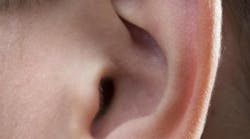The issue of hearing loss where trucking is concerned, though, is pretty straightforward: a good portion of a truck operator’s daily life revolves around the ability to hear things correctly, be they turn-by-turn navigational instructions, sirens from police or emergency vehicles, and voice communication via radio, cell phones, or whatever with dispatchers, fellow drivers, and the like.
Damaged hearing, then, creates extra obstacles for any worker – much less truck drivers – trying to complete any number of daily tasks.
And this problem is more widespread than many may thing. According to a poll of 1,500 U.S. full-time workers by EPIC Hearing Healthcare (EPIC), some 30% suspect they have hearing loss, yet haven’t sought treatment for it.
Of those 30%, almost all of them – a whopping 95% – say it impacts them on the job, RPIC found.
On top of that, less than one-fourth of employees have had their hearing checked in the past two years, the company’s survey revealed, the firm reported.
Brad Volkmer, EPIC’s president and CEO, said this poll uncovered a wide range of ways employees believe their untreated hearing loss is affecting them, from having to ask people to repeat what they said (61%) to misunderstanding what is being said (42%) to even pretending to hear when they cannot (40%).
"Untreated hearing loss is hurting more than employee productivity," he explained. "The strain from poor hearing also damages employee health and well-being by causing anxiety and stress, even contributing to depression."
There’s an economic impact to hearing loss as well, with the Better Hearing Institute reporting that individuals lose approximately $1,000 in annual household income for every 10% increase in hearing loss.
Thus, more widespread use of hearing aids should correct this issue, right? Well that’s not so simple, as I can attest.
The National Institutes of Health, for example, noted recently that hearing aids cost on average about $1,500, but can be as high as $3,000 to $5,000 per device (and you need two of the suckers to hear properly).According to EPIC's research, many employees (28%) are under the false impression that hearing aids are covered under most medical plans or by Obamacare (18%), and many more (42%) admit they just don't know. While supplemental hearing insurance can help cover the cost of hearing aids, only 15% of employees are offered the benefit.
Thus fixing hearing loss is certainly not a cheap proposition. I for one put off dealing with hearing aids simply because I didn’t have $6,000 just laying around for purchasing a set of hearing aids (not to mention that paying college tuition for my first of three kids is going to become reality in 24 months or so.)
There also remains a certain stigma to wearing hearing aids, too. The National Institute on Deafness and Other Communications Disorders, for example, conducted a recent poll and found only one out of five people who could benefit from a hearing aid actually wear one.
"Some employees are worried that wearing hearing aids will make them look older or that they will be viewed as less capable," said EPIC’s Volkmer.
Something to be considered as more and more American workers – including yours truly – deal with the fallout from hearing loss.





